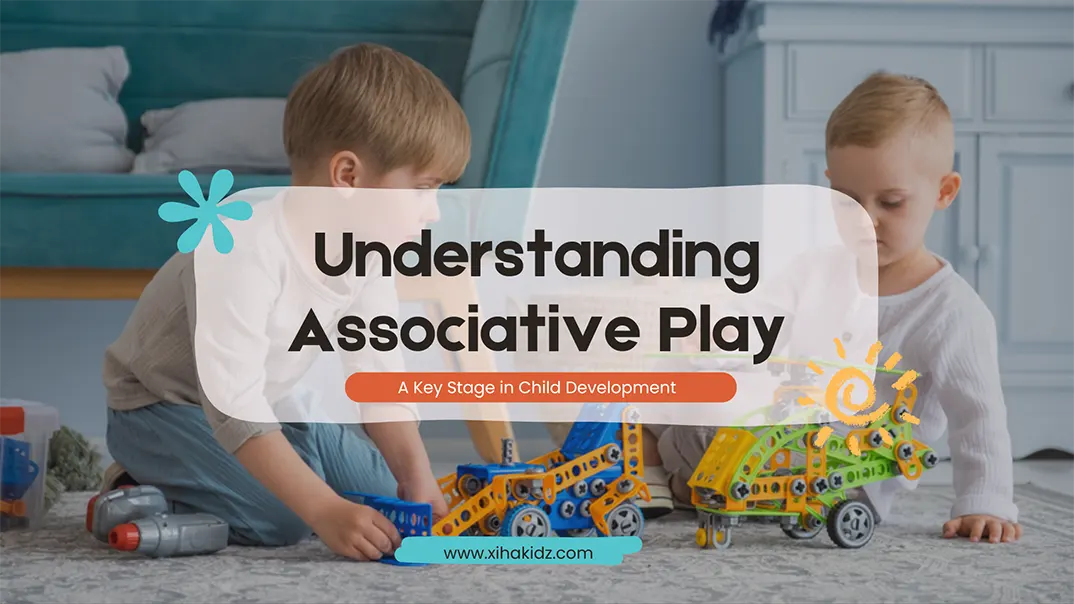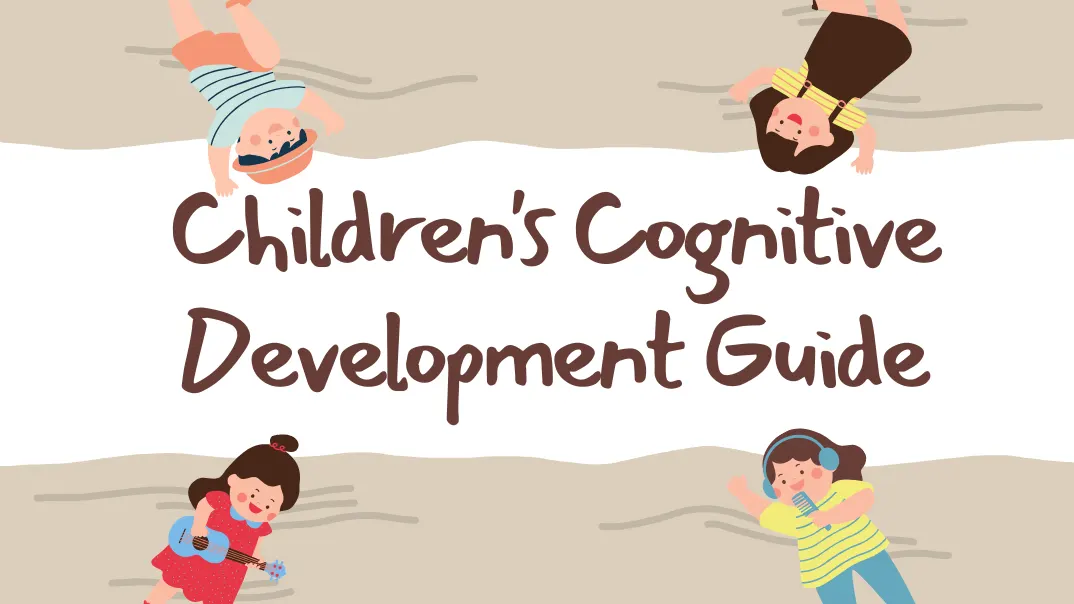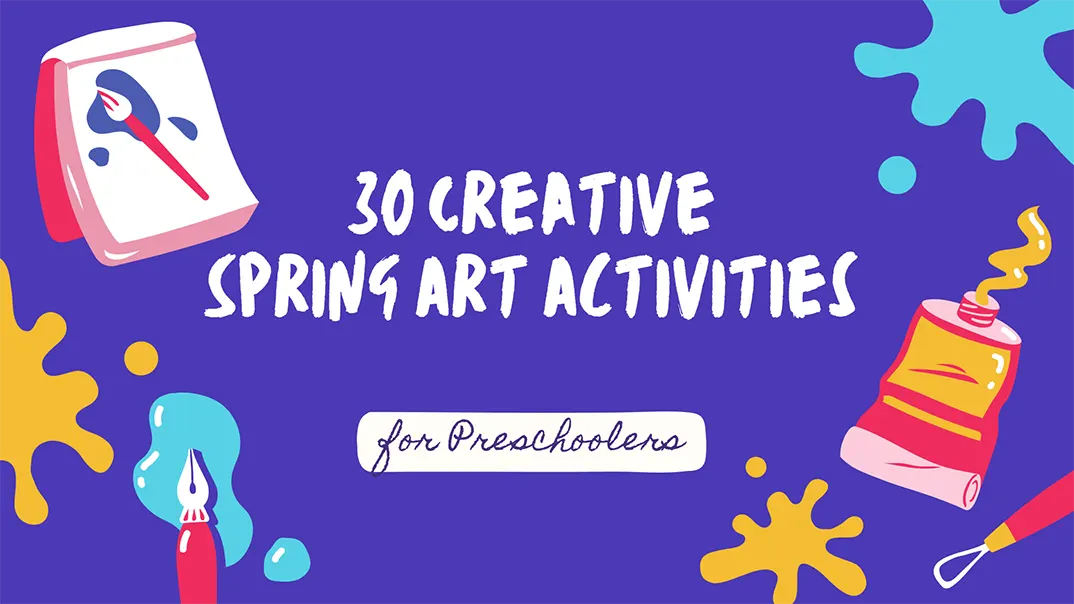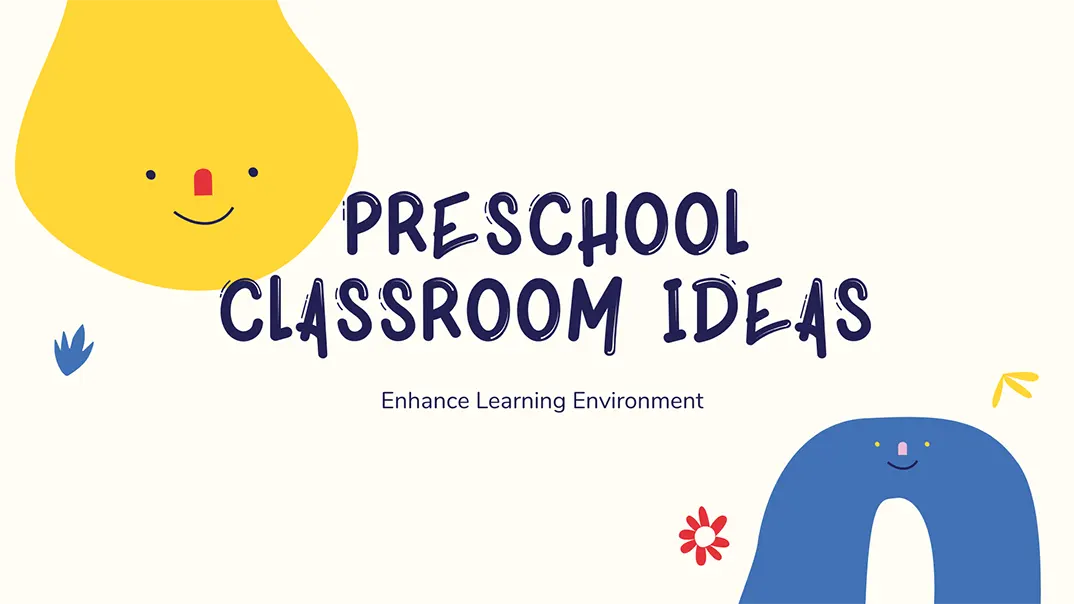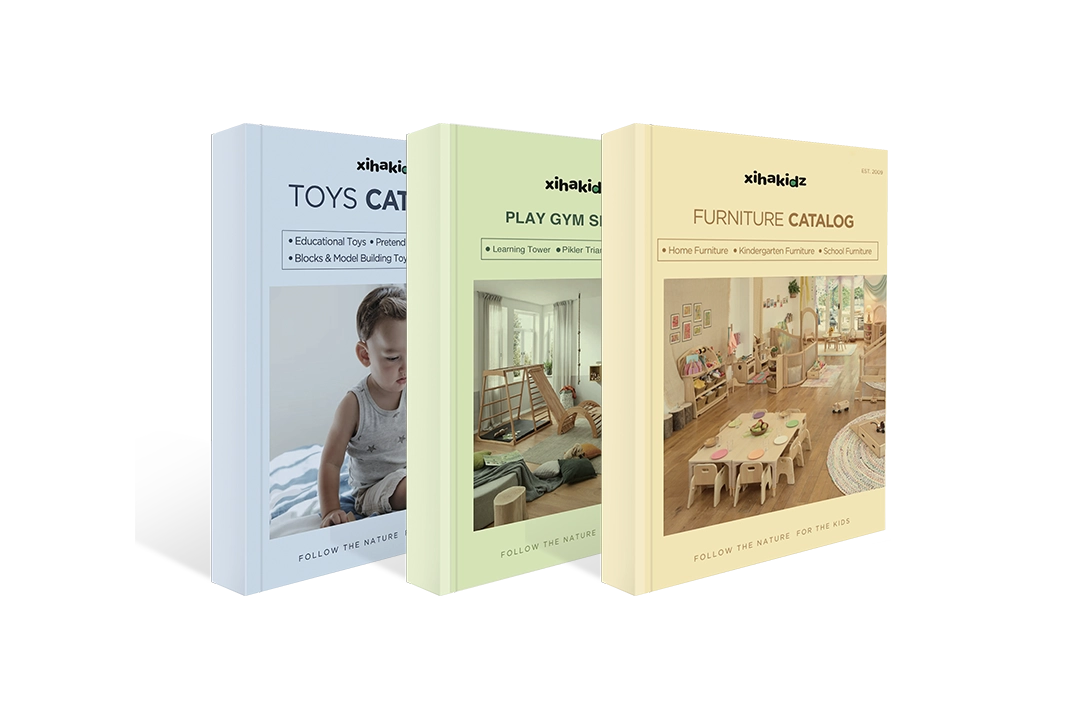Are you looking for fun, engaging ways to help preschoolers explore who they are? Do you want to encourage self-awareness and creativity in your little learners? Are you ready to discover activities that will spark their curiosity and build their self-esteem?
All About Me activities for preschoolers are a fantastic way to introduce young children to their unique qualities, interests, and identities. These activities enhance their social skills and nurture their emotional development, making learning fun and personal.
As preschoolers understand their place in the world, these All About Me activities for preschoolers can become essential for their growth and confidence. Keep reading to explore 20 exciting ideas for creating a memorable and meaningful “All About Me” experience!
Benefits of All About Me Activities for Preschoolers
Engaging in All About Me activities provides numerous developmental benefits for preschoolers. These All About Me activities for preschoolers are not just fun — they help children build critical skills in emotional, social, and cognitive areas. Below are some of the key benefits of introducing these activities to young learners:

1. Promotes Self-Awareness
When children participate in All About Me activities for preschoolers, they focus on themselves and start understanding who they are. They learn about their likes, dislikes, preferences, and unique qualities. This early self-awareness is the foundation of emotional intelligence, helping them recognize and express their feelings healthily.
For example, when preschoolers draw pictures of themselves, they identify physical traits and think about how they see themselves in the world. This can help them develop a sense of pride and confidence in their individuality.
2. Builds Self-Esteem
Children are naturally curious about themselves, and giving them space to explore their identity boosts their confidence. All About Me activities for preschoolers encourage positive self-reflection — such as making “All About Me” books or sharing personal stories — and allow children to see themselves positively.
They feel validated and appreciated for their uniqueness when they express things like their favorite food, family members, or activities. Over time, this builds a strong sense of self-worth that will support them throughout their lives.
3. Enhances Social Skills
“All About Me” activities for preschoolers often encourage children to share information about themselves with others, which can improve their communication and social skills. When children talk about their likes, dislikes, and personal experiences, they practice speaking clearly and listening to others.
This also helps them develop empathy as they begin to understand that their peers are unique in their ways. By recognizing and celebrating differences, preschoolers learn to respect diversity, a valuable lesson for building social harmony in later life.
4. Encourages Emotional Development
These activities offer a safe space for children to explore and understand their emotions. Through journaling, role-playing, or creative expression, young children gain valuable skills in managing their emotions.
For instance, an activity where children describe their feelings in different situations (happy, sad, excited, etc.) helps them put emotions into words. This vocabulary helps them articulate their feelings and enhances their ability to understand others’ emotions, fostering a supportive emotional environment.
5. Supports Language and Literacy Skills
All About Me activities for preschoolers, like creating personal books, singing songs about themselves, or engaging in storytelling, promote vocabulary development and early literacy skills. These exercises encourage children to expand their language, learn new words, and improve sentence structure while learning about themselves.
For example, asking children to describe their family members or favorite toys leads them to practice using adjectives, verbs, and nouns. These small but meaningful interactions help build the foundational skills needed for reading and writing in the future.
6. Strengthens Cognitive Development
Learning about themselves also involves critical thinking. Preschoolers are encouraged to think about their identities, relationships, and preferences, which fosters problem-solving skills. For example, when children create a simple “All About Me” chart, they organize their thoughts and ideas in a structured way. This helps them practice memory recall, sequencing, and categorization — skills that support overall cognitive growth.
How to Incorporate All About Me Preschool Activities in the Classroom
Integrating “All About Me” activities into your preschool classroom doesn’t have to be complicated. With a little creativity, you can create an engaging and inclusive learning environment that helps children explore their identities. Here are some simple yet effective ways to incorporate these All About Me activities for preschoolers into your daily routine.
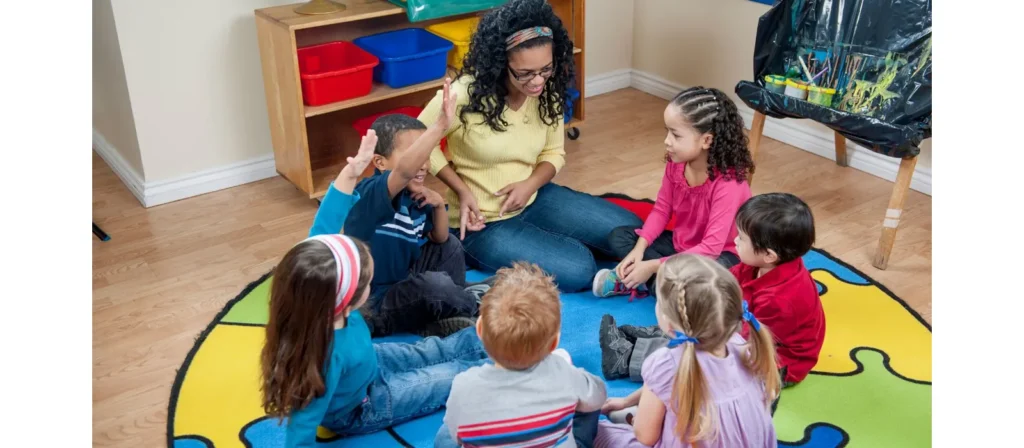
1. Start with a Circle Time Discussion
Circle time is a perfect opportunity to begin exploring the concept of “All About Me.” Begin by asking the children a few open-ended questions that prompt self-reflection, such as:
- What’s your name?
- What do you like to do for fun?
- Who is in your family?
- What’s your favorite color?
As you go around the circle, encourage each child to answer and share something unique about themselves. This activity builds self-awareness and promotes listening and speaking skills as children engage with their peers’ responses. You can also introduce visuals like family photos, favorite toys, or simple drawings representing their discussion. This helps children express themselves with more clarity and creativity.
2. Create a Welcoming Atmosphere
Start by designing a classroom space that celebrates each child’s individuality. Decorate the classroom with photos of the students, their families, and artwork. Set up a special bulletin board titled “All About Me” where children can post information about themselves, such as their favorite food, hobbies, and what makes them unique. This gives the children a sense of ownership over their environment and encourages them to share more about themselves with their peers.
3. Encourage Storytelling and Sharing
Storytelling is a powerful tool for young learners, and it can be a wonderful way for them to express their feelings and share their experiences. Dedicate weekly time for children to share stories about their lives, whether it’s their favorite memory, a family tradition, or a special moment. You can provide props or story prompts to help them get started. As children share their stories, they learn about themselves and practice listening skills and empathy.
4. Use Music and Movement
Incorporate music and movement into your All About Me activities for preschoolers to make learning fun and interactive. Have children create “theme songs” or sing songs about themselves, their families, or their favorite things. This encourages self-expression and helps children recognize their unique qualities in a lighthearted, enjoyable way. Music and movement also promote physical development, which is essential for preschoolers.
เปลี่ยนห้องเรียนของคุณด้วยโซลูชันเฟอร์นิเจอร์ที่ออกแบบเอง
20 All About Me Activities for Preschoolers
Incorporating All About Me activities into the preschool curriculum makes learning fun and helps children explore their identities in various ways. Below are some fun and educational All About Me activities for preschoolers that can be done in the classroom, divided into different categories: art, science, and math.
All About Me Art Activities for Preschoolers
Art is a fantastic way for preschoolers to express themselves. These creative activities help children explore their identity, express their feelings, and develop fine motor skills. Here are some creative All About Me art activities for preschoolers:
1. Self-Portrait
Self-portraits are one of the best ways for preschoolers to reflect on themselves while practicing their drawing skills. These All About Me activities for preschoolers help children understand their facial features and recognize their identity.
Provide children with mirrors and paper, then ask them to draw a self-portrait. Encourage them to include their eyes, nose, mouth, and hair. You can also guide them in adding personal details, such as their favorite clothes or accessories. For a more advanced touch, you can even introduce different drawing materials like crayons, colored pencils, or markers.
This activity enhances fine motor skills and helps children better understand their physical appearance, fostering self-awareness.
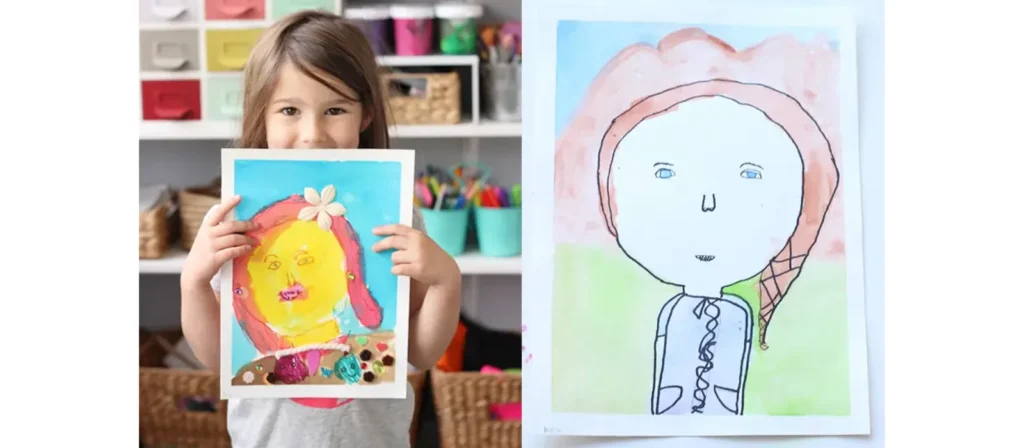
2. My Favorite Things Collage
Creating a collage of favorite things helps preschoolers express what makes them happy and unique.
Provide children with magazines, colored paper, stickers, and other art supplies. Ask them to cut out images of their favorite things, such as animals, toys, food, or activities, and glue them onto a large sheet of paper. This allows them to visually represent their likes and interests, helping shape their identity.
Collage-making develops creativity and allows children to reflect on their preferences, making the activity fun and insightful.
3. My Family Tree: All About Me Activities for Preschoolers
Family is an essential part of a child’s identity. A family tree collage is a great way for preschoolers to learn about their family members and express their understanding of relationships.
Provide children with a large piece of paper and some colorful construction paper. Help them draw a tree trunk and branches, then ask them to cut out or draw pictures of family members, such as parents, siblings, pets, or extended family. Attach these pictures to the tree’s branches, visually representing their family structure.
You can also encourage children to decorate their trees with leaves, flowers, or other elements representing their family’s traditions and special memories. This activity allows children to explore family dynamics while practicing cutting and gluing and promotes conversations about relationships and connections.

4. Create an “All About Me” Book
One of the best ways to let children learn about themselves is by creating a personalized “All About Me” book. Each child can make their book with pages dedicated to things like:
- Family – A page where they draw or paste pictures of their family members.
- Favorites – A page for their favorite foods, colors, and animals.
- Feelings – A page where they describe how they feel at different times, using simple emotions like happy, sad, and excited.
- Hobbies – A page where they draw or describe their favorite activities.
This project allows children to express their personalities through art and writing while developing fine motor skills. These books can also serve as lasting keepsakes for the children and their families. It’s also a wonderful way for children to share their personal stories with others!
5. “My Body” Sculptures
Clay is a fantastic material for developing fine motor skills, and it can also be used to create 3D representations of the child’s body or personality.
Use playdough or modeling clay to help children sculpt a representation of their body, such as a figure with arms, legs, and a face. You can help them personalize the sculptures by adding details like hair, clothes, or accessories. This allows children to engage with the concept of their body while being creative and tactile.
This hands-on activity encourages children to visualize and build a physical model of themselves, helping them explore their appearance in a fun way.
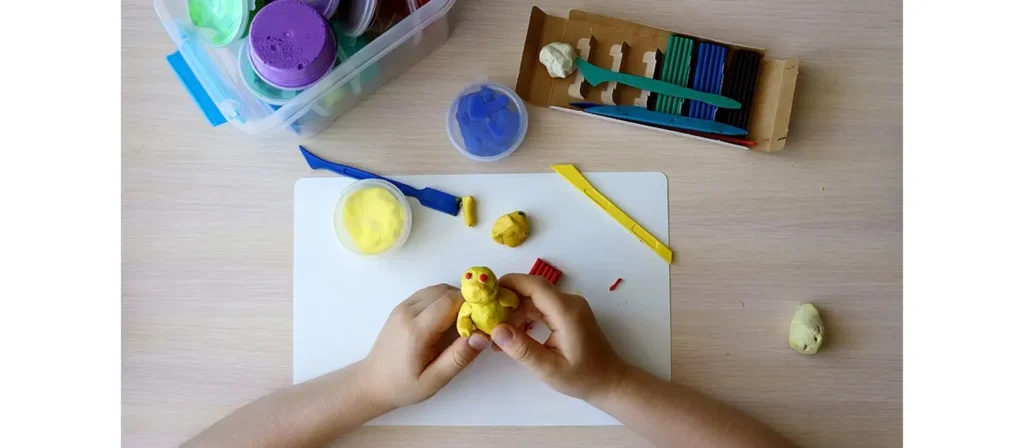
6. All About My Emotions
Art is a powerful tool for exploring and expressing emotions. This activity helps preschoolers reflect on their feelings and communicate them through art.
Provide children with various materials, such as colored paper, markers, and stickers, and ask them to create art that expresses different emotions (happy, sad, excited, angry). You can introduce emotion charts or pictures showing different facial expressions to guide them. Ask them to discuss why they feel how they do and how their art represents those emotions.
This project encourages emotional intelligence and self-reflection, helping children understand and healthily express their feelings.
7. My Favorite Colors: All About Me Activities for Preschoolers
Color exploration is vital for young children as they learn to express their likes and dislikes. This activity encourages them to think about their love colors and how to use them in their artwork.
Provide children with paint, crayons, or markers and ask them to create an artwork using only their favorite colors. Whether it’s a picture of themselves, their family, or abstract shapes, this project helps children express their identity through color. You can also discuss why they chose those colors and what makes them special.
This activity not only helps in recognizing color preferences but also strengthens decision-making and self-expression skills.
8. Favorite Food Plate
A paper plate can easily be turned into a fun and personalized craft project to showcase the foods that preschoolers love.
Give each child a paper plate and a selection of art supplies such as markers, crayons, and colored paper. Ask the children to draw or cut out and glue their favorite foods on the plate. They can draw a pizza, sandwich, fruit, or any food they enjoy. This allows children to make a visual representation of their favorite meal.
This activity encourages creativity, helps children better understand their food choices, and reinforces concepts like shapes and colors.
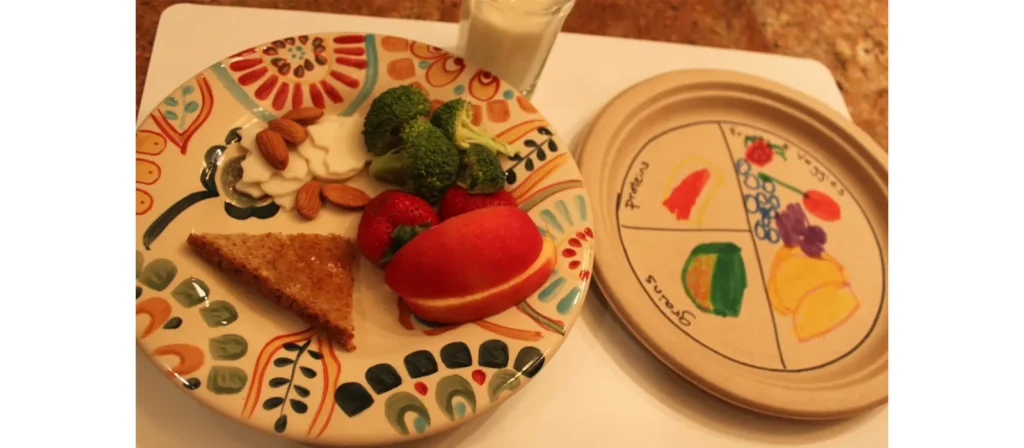
9. Personalized Name Tags: All About Me Activities for Preschoolers
Personalized name tags are a simple yet meaningful way to help preschoolers express themselves creatively while reinforcing the recognition of their names and their sense of identity. This art project is fun and can serve a practical purpose in the classroom.
Give each child a blank name tag template or cardstock and let them decorate it using various art supplies—markers, stickers, glitter, or colored paper. Encourage them to add their favorite colors or small drawings representing their identity. Once completed, these name tags can be attached to their desks or backpacks or worn during group activities.
Personalized name tags are an excellent tool for self-expression and can also help preschoolers feel more comfortable in a group setting.
10. “All About Me” Posters
Creating an “All About Me” poster is an excellent way for preschoolers to present information about themselves in a fun and visually engaging way. It allows them to summarize who they are through art, writing, and images.
Provide each child with a large piece of paper and ask them to draw, color, and write about themselves. Sections of the poster can include information like their name, age, favorite color, favorite food, family members, and hobbies. Children can also include pictures of things they enjoy, such as animals, sports, or places they like to visit.
Once the posters are completed, display them around the classroom or have a “gallery walk” where each child presents their poster to the group. This activity helps children practice writing and drawing skills, and it’s a fun way to encourage sharing and listening.
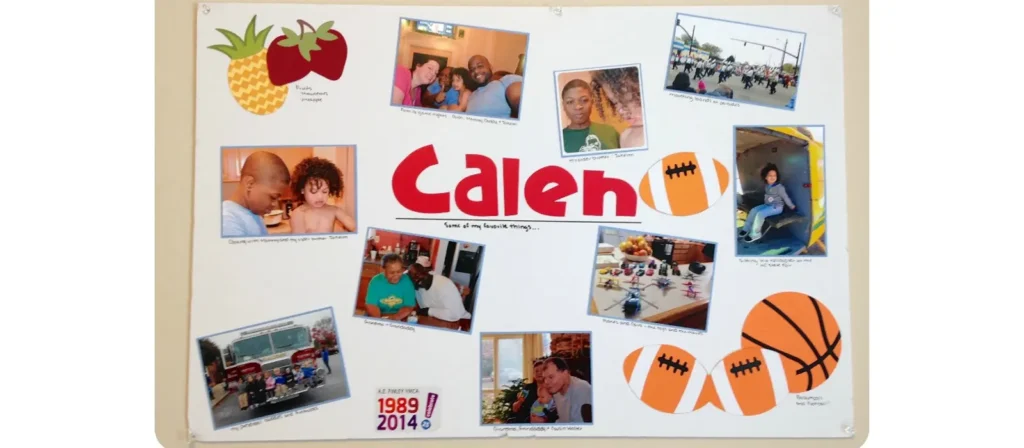
11. My Dream Future: All About Me Activities for Preschoolers
What do preschoolers dream of becoming when they grow up? Whether it’s a doctor, teacher, artist, or astronaut, children have vivid imaginations that deserve to be celebrated through art. This activity allows children to reflect on their aspirations while practicing creativity.
Ask children to draw a picture of what they want to be growing up. If unsure, guide them by asking questions like, “What kind of job would you like to do?” or “What would make you happy to do every day?” Encourage them to use lots of colors and to add details such as uniforms, tools, or settings related to the profession they are picturing.
This activity offers a great opportunity to talk about different jobs. It also helps children visualize their goals, boosting their confidence and curiosity about the future.
12. Animal Symbolism
Animals have long been associated with specific traits and characteristics, making them an excellent metaphor for self-reflection. This activity lets preschoolers pick an animal that represents their personality and express themselves creatively through art.
Ask each child to choose an animal that represents them. It could be an animal they admire or one whose qualities resonate with their personality. For example, a child who feels strong might choose a lion, while a quiet child might pick a rabbit. Once the animal is selected, children can draw or paint it and decorate it with colors or patterns that reflect their personality.
This activity encourages self-awareness and allows children to creatively express their thoughts about the animal kingdom.
13. Body Tracing: All About Me Activities for Preschoolers
Body tracing is a fantastic way for preschoolers to understand their physical selves. Children can develop body awareness and practice fine motor skills by tracing their bodies.
Have each child lie down on a large butcher paper or poster board. Trace their body outline with a marker or crayon. Once the outline is complete, encourage the child to add details like clothing, facial features, and accessories. Children can decorate their bodies with favorite colors or symbols representing their identity.
Body tracing helps children understand their body’s size and shape, allowing them to reflect on their unique characteristics visually and tactilely.

All About Me Science Activities for Preschoolers
Science All About Me activities for preschoolers provide an excellent opportunity to explore their world, learn about themselves, and develop curiosity. These All About Me science activities allow children to learn about their bodies, senses, and how they interact with their environment.
14. My Heart and Lungs
Learning about the heart and lungs is a fascinating “All About Me” science activity for preschoolers. By exploring how the heart pumps blood, and the lungs help us breathe, children can understand the basic functions of keeping their bodies healthy.
You can create a simple “heart” model using a balloon and a plastic bottle. Cut the bottom of the bottle, attach a balloon to the neck, and inflate it to demonstrate how the heart pumps. For the lungs, you can use a pair of balloons connected to straws to show how air moves in and out as we breathe.
Using visual aids and interactive experiments, children can understand that their heart and lungs are vital for life and begin understanding their role in health and movement.
15. Exploring Fingerprints
No two people have the same fingerprints, and learning about this scientific fact is a fun and intriguing way for preschoolers to discover what makes them unique.
Provide ink pads and paper for children to press their fingers on, creating a fingerprint. Talk about their fingerprints’ uniqueness and their role in identifying individuals. You can also let them compare their fingerprints to others to see the differences. This activity fosters scientific curiosity and personal reflection, showing children how special and unique they are.
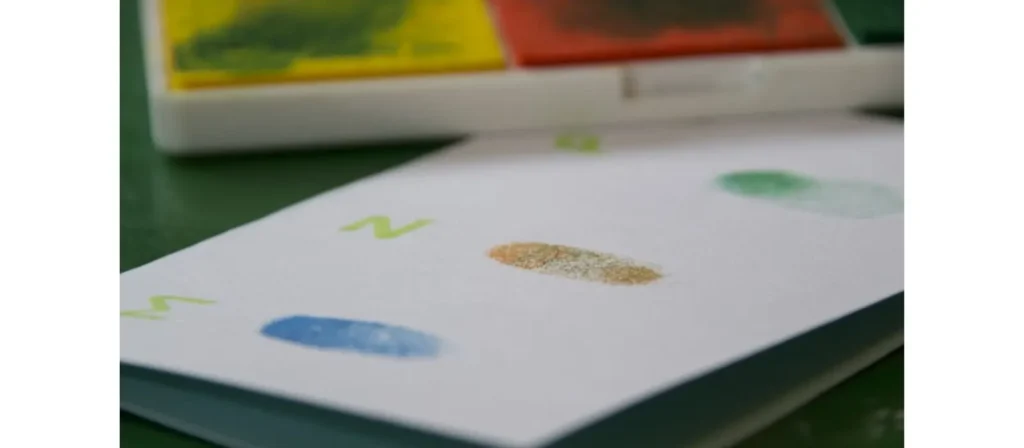
16. My Shadow: All About Me Activities for Preschoolers
Shadows are a fascinating scientific phenomenon that can help preschoolers understand the basics of light and how it works.
Set up a simple experiment where children stand in front of a light source (like a flashlight) and watch how their shadow changes depending on the angle of the light. Let them explore how moving closer or farther from the light affects the shadow’s size.
By experimenting with shadows, preschoolers can understand the relationship between light, distance, and the shapes we create.
17. Color and Skin
Preschoolers are often fascinated by how their bodies are different from others. Learning about skin color and how our body uses pigments can help children appreciate diversity.
Use different shades of construction paper to represent different skin tones and have children match their skin tones to the appropriate paper. Explain that skin color is determined by pigments in our skin and how those pigments protect us from the sun. You can also use a magnifying glass to show skin textures up close.
This activity encourages children to appreciate the beauty of diversity while introducing them to basic biology concepts.
All About Me Math Activities for Preschoolers
Math activities can also be linked to “All About Me” themes, helping children understand numbers, shapes, and comparison concepts. Here are some simple math-focused activities for preschoolers:
18. Counting My Family
One of the first math concepts that preschoolers learn is counting. “All About Me” math activities can make counting more meaningful by involving the child’s family.
Have the child count their family members, including pets, by using pictures or drawing simple family portraits. This activity helps children practice counting and fosters a sense of connection and importance with their family members. You can extend the activity by asking questions like, “How many family members do you have?” or “How many pets are in your family?”
By connecting the concept of numbers with their own family, children can see how math applies to their world.
19. Measuring Me: All About Me Activities for Preschoolers
Preschoolers are naturally curious about how their bodies compare to others. This math activity introduces basic measurement concepts by focusing on their own body.
Use a measuring tape or ruler to measure the child’s height and weight. You can compare their measurements to objects or other children, reinforcing concepts like “taller,” “shorter,” “heavier,” and “lighter.” Another fun measure method is using non-standard units, such as comparing the child’s height to blocks or other classroom items.
This activity helps children understand measurements concretely and visually by connecting math concepts to their bodies.

20. “All About Me” Graphing
Graphing is a fun and visual way to explore data and math. Preschoolers can easily relate to creating graphs that reflect their preferences and attributes.
Create a graph representing the child’s favorite foods, colors, or animals. For example, children can color in sections of a bar graph based on how many times they like a certain food or animal. This can be done using stickers or colored markers for visual engagement. You can also use real objects, like fruit or toys, to make the graph more interactive.
By creating graphs, children develop early data collection, comparison, and visual representation skills, making the learning experience more fun and personalized.
Reflection and Assessment of All About Me Activities for Preschoolers
Reflection and assessment of All About Me activities for preschoolers help gauge how well children develop self-awareness, emotional skills, and cognitive abilities. It’s important to track progress and adjust activities based on observations. Here’s how to effectively reflect and assess these All About Me activities for preschoolers:
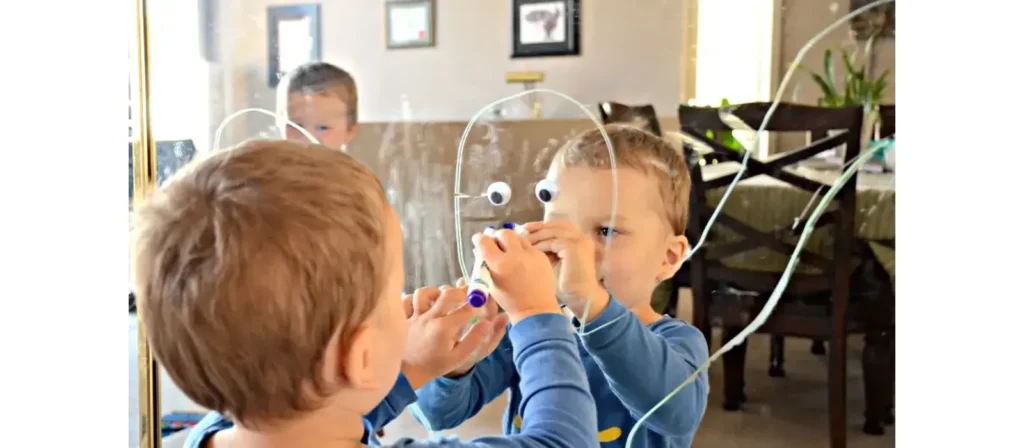
1. Observe Individual Progress
Watch how each child engages with All About Me activities for preschoolers. Are they excited to share or hesitant? Track emotional growth, such as their ability to express feelings and connect with others.
2. Use Reflective Conversations
After All About Me activities for preschoolers, ask children reflective questions like, “What did you learn about yourself?” or “How did you feel about drawing your family?” This helps gauge their understanding and feelings about the activity.
3. Collect Work Samples
Keep samples of children’s work, like self-portraits, family trees, or “All About Me” books. Reviewing these over time shows growth in self-expression.
4. Get Feedback from Parents
Ask parents how their child engages with All About Me activities at home. This provides valuable insights into their emotional and cognitive progress outside the classroom.
5. Celebrate Achievements
End All About Me activities for preschoolers by celebrating progress through a class presentation or a simple acknowledgment. This builds confidence and reinforces the value of self-expression.
6. Use Assessments for Future Planning
Use observations to plan All About Me activities for preschoolers in the future. If a child struggles with expressing emotions, focus on activities that encourage emotional identification.
บทสรุป
All About Me activities for preschoolers are an excellent way to explore their identities, express their creativity, and develop important social, emotional, and cognitive skills. By incorporating art, science, and math into these All About Me activities for preschoolers, children learn about themselves and build foundational knowledge to serve them throughout their lives.
ค้นพบผลิตภัณฑ์ทั้งหมดของเรา
เข้าถึงแค็ตตาล็อกที่ครอบคลุมของเราซึ่งมีเฟอร์นิเจอร์คุณภาพเยี่ยมและอุปกรณ์การเล่นสำหรับโรงเรียนอนุบาลและโรงเรียน


